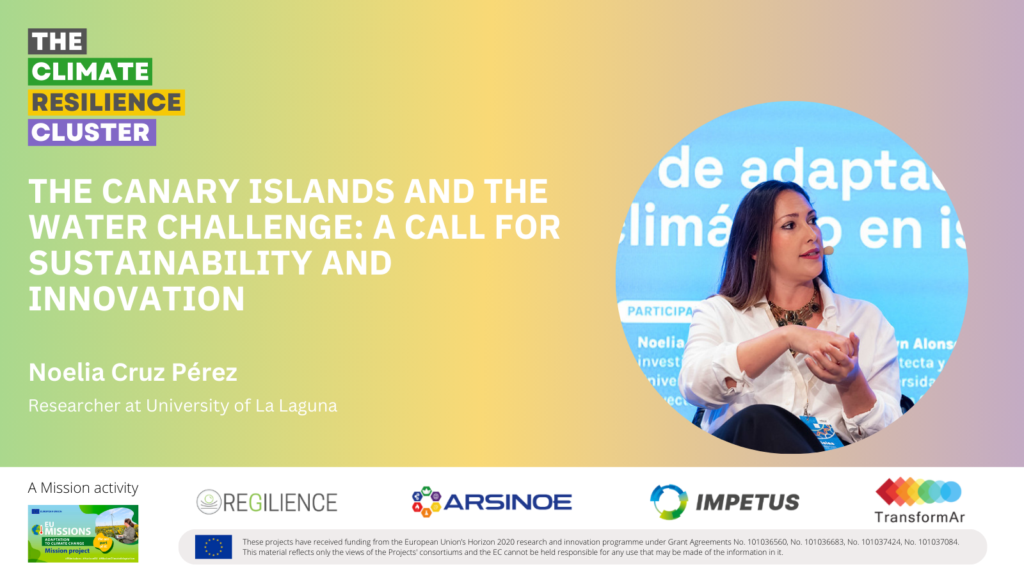
The Canary Islands, a Spanish archipelago and an outermost region of the European Union, face unique challenges due to their geographical position and specific climatic and economic conditions. Like the other eight outermost European regions, the Canary Islands have a dedicated agenda aimed at maximizing their development and sustainability through the Smart Specialization Strategy[1]. This strategy seeks to enhance the distinctive characteristics of the territory and establish precise objectives for its growth and resilience.
One of the most critical areas of interest for the region is water management. The availability of this resource is essential for the well-being of the population, economic development, and environmental sustainability of the archipelago. Thanks to the funding of European projects, research in this field has advanced, fostering innovation and training new researchers and PhDs in various areas related to water management in the Canary Islands.
Groundwater: A Hidden Treasure
The Canary Islands are rich in groundwater, which serves as the primary source of drinking water for many of the islands. In the western islands, in particular, volcanic aquifers are crucial for water supply. However, these aquifers are highly heterogeneous, making it essential to improve knowledge about their behavior and characteristics.
Studying these aquifers will help to better quantify the natural recharge of groundwater, a key factor in understanding the water balance of the islands. It will also aid in assessing the quality of water bodies, an issue of particular relevance in places like La Palma. The eruption of the Tajogaite volcano in 2021[1] had a significant impact on the island’s water resources, and the Arsinoe project[2], developed by the University of La Laguna[3], enabled real-time monitoring of the water bodies affected by this phenomenon. Such studies are essential for developing more effective and sustainable water management strategies in the future.
Water and Energy: A Crucial Link
Another fundamental reason for prioritizing water research in the Canary Islands is its close relationship with energy production. In a context where the energy transition is a global priority, the Canary Islands face a particularly challenging situation. Currently, the archipelago’s energy mix relies 80% on fossil fuels, with only 20% coming from renewable sources. The only notable exception is the island of El Hierro, where the Gorona del Viento project[4] has made significant strides toward renewable energy self-sufficiency.
Access to and efficient management of water is key to promoting a more sustainable energy model in the Canary Islands. Technologies such as desalination or energy storage through hydraulic systems require a deep understanding of the available water resources. Therefore, the interconnection between water and energy must be a central focus in the region’s development policies.
A Drier and More Challenging Future
The climate projections for the Canary Islands are not encouraging. Studies conducted under the Arsinoe project, through the SICMA Canarias platform[5], have developed high-resolution (100 meters) climate models indicating a future with reduced rainfall, increased drought and aridity, and higher temperatures. These climatic changes will directly impact water availability, a resource already under increasing pressure due to population growth and the expansion of the tourism sector, the region’s main economic driver.
You can read and download the full article here.
Sources:
[1] https://geotenerife.com/volcanostories/the-la-palma-project/tajogaite-timeline/
[2] https://arsinoe-project.eu/
[3] https://www.ull.es/
[4] https://www.goronadelviento.es/
[5] https://canarias.sicma.red/
[6]https://www.gobiernodecanarias.org/conocimiento/temas/innovacion/RIS3ampliada/